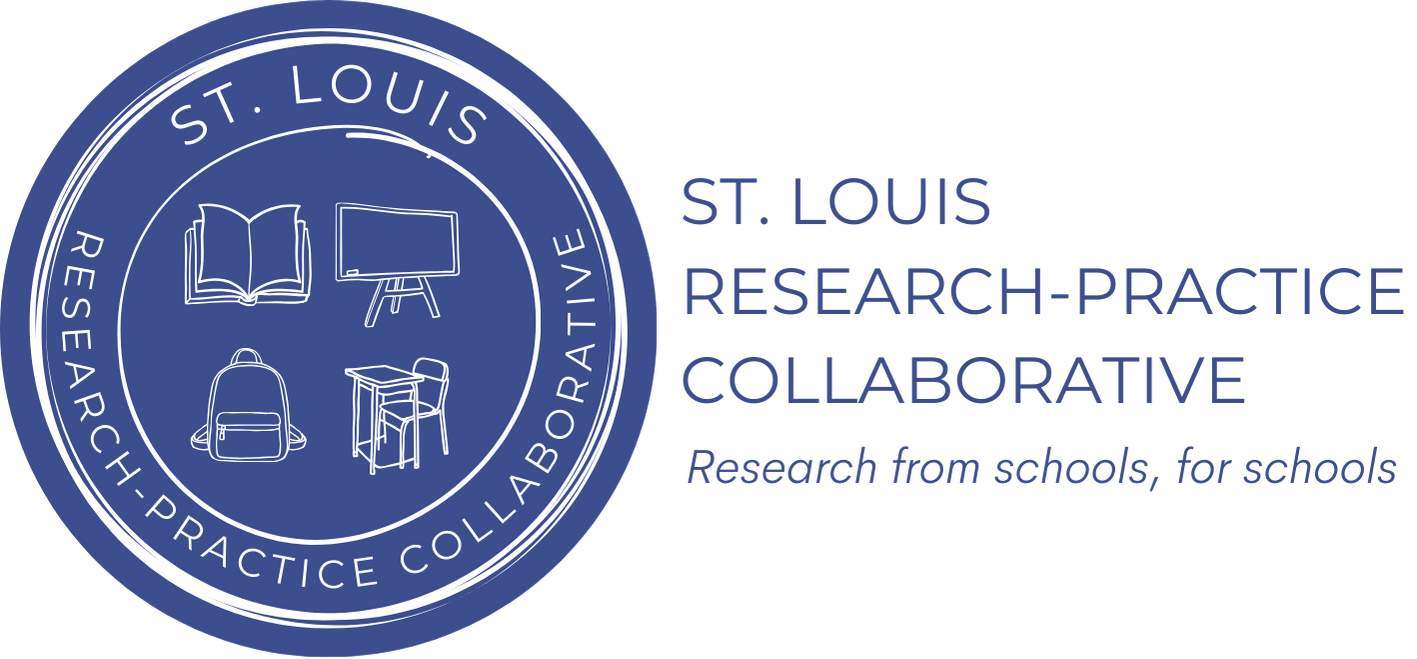How does the SRPC work?
Process
At the SRPC, we develop and conduct research with St. Louis schools in four steps:
Setting the Agenda: The Research-Practice Advisory Council, the governing body formed of school leaders, university researchers, and community organizations sets a yearly agenda of topics for research based on the needs and priorities of schools.
Forming the Teams: Teams of researchers, school practitioners, and community members form as needed to conduct research to answer questions related to the research agenda. Team members are identified based on expertise, impact, and proximity to the area of interest.
Conducting the research: Research teams work together to execute the work, combining the research expertise of university partners with the nuance and subject matter expertise of school practitioners to understand and generate practical insights for schools to tackle problems in the area of interest.
Engaging and Sharing: Research teams present results back to the Advisory Council. School leaders work with the research teams and Knowledge Engagement Committee to plan for implementation of insights and for communicating results within schools and to the public, and work with the research teams and the Knowledge Engagement Committee to form plans for implementation of learning.
Structure
During the pilot phase of the SRPC, the organization operates under a transitional structure. This structure will be re-evaluated at the end of the pilot phase by the Research-Practice Advisory Council to determine next steps to maintain the long-term sustainability of the SRPC.
Key Responsibilities
Research-Practice Advisory Council: advise key research projects; work together to share results and develop solutions with respective school systems; work with SRPC management (SKIP) to engage stakeholders; and determine a permanent managing entity after the first year
Data Committee: create more streamlined & robust data systems for education in the St. Louis region
Student Mobility Committee: conduct research to understand the patterns and impacts of student mobility on STL's education system
Knowledge Engagement Committee: design and implement pathways for practitioners to deeply engage with research
SKIP Designed provides pro-bono project management support for the SRPC.
See current members of the committees here.


